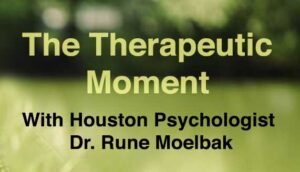When your partner becomes depressed, it can be difficult to know what to do.
Depression in one person can often affect the relationship as a whole. The depressed partner may become more irritable or may stop wanting to be affectionate, or they may respond by needing more attention or requiring more help solving different issues. As a partner who wants to be there for their loved one it can often be very frustrating or depressing to feel helpless to change how the other person feels. It can be very easy for the non-depressed partner to wonder if they themselves are somehow to blame, or to wonder if their partner's unhappiness is a reflection their lack of happiness with the relationship.
In this blog post, I would like to provide some advice to the partner of a loved one who is currently feeling depressed. Here are 4 key points which I think you will find it useful to remind yourself of:
1. You cannot take responsibility for your partner’s depression:
The most basic truth about depression is that it can never become the responsibility of the non-depressed partner. At the end of the day there is nothing YOU can do to pull somebody else out of THEIR depression. Sure you can be there for them and support them through it, but you should never make it your sole responsibility and mission to solve your partner’s problems. At times your partner may blame you for their depression or find fault with you for the ways in which you fall short, but the truth is that nobody can be responsible for somebody else’s happiness. It is important that we take responsibility for our own feelings and take ownership for our own lives.
2. It is important to have clear boundaries:
Although you should be willing to support your partner through their difficult time, and should offer to be there to listen, it is not healthy for you to become your partner’s only support, or for you to act as your partner’s therapist. If you do not have clear boundaries, you can easily end up feeling just as depressed as your partner, and your relationship can quickly become a source of stress and negativity that won’t serve either of you. Encourage your partner to not just lean on you, but to also lean on family and friends, or convince them to talk to a therapist if needed. Be patient with your partner as they go through this difficult time, but don’t put your own life on hold, or make your entire relationship about your partner’s problems.
3. Take care of your own emotional needs as well:
When one partner becomes depressed, it can easily come to affect the health of your overall relationship. Your partner may become more critical of you due to their increased irritability or unhappiness, or may become less affectionate or more withdrawn as a result of the general loss of interest in things and people around them. This may lead you to feel rejected or may become a significant stressor that affects your own level of happiness. It is important for you to have an outlet for some of your own frustrations and it may be a good idea for you to see a therapist as well, or to lean on trusted friends whom you can confide in and use as an emotional outlet.
4. Your partner’s depression may mean you need to talk about your relationship:
Depression in a relationship is never a simple thing. Sometimes it becomes the cause of arguments because of the impact it has on the way partners interact. Feelings of inadequacy, rejection, or pressure can intensify pre-existing sensitivities, or worsen unresolved relationship insecurities and dissatisfactions.
Although depression in one partner can certainly lead to more relationship distress for both partners, it can also be the effect of preexisting relationship distress and unresolved issues between the partners that couples have not been able to address.
Depression in one partner may signal that they are not able to get their relationship needs met and may be a sign that they are struggling with underlying feelings of being unwanted, not feeling close, or not feeling good enough. Sometimes it can be difficult for the depressed partner to really identify what it is they are missing in their relationship and they may not be able to communicate what they need in a way that leads to the resolution of their concern. This can lead to endless arguments about the wrong things, or to the expression of frustration that drives a wedge between partners rather than brings them closer.
Although the non-depressed partner should never be made entirely responsible for the depressed partner’s feelings, it goes along way if the non-depressed partner is willing to listen and show that he or she truly cares about what might be bothering the other person.
Sometimes the true issues that are keeping one partner depressed, or both partners unhappy, may not be readily apparent or may not be easy to talk about without one or both partners becoming defensive or hurt. In these cases it is generally recommended that you get the help of a couples therapist who can help facilitate a new kind of communication, and can help both of you understand each others needs and longings at a deeper level.
At the end of the day, depression in a relationship is something that is important to talk about. It is important to be receptive to concerns or issues your partner might be having about the way you relate to each other, but also to have clear boundaries, and a clear understanding of the limits of your responsibility, and the legitimacy of your own relationship needs.
About me: I am Rune Moelbak, Ph.D. a couples therapist in Houston, TX. I offer individual therapy for depression as well as couples counseling that addresses the issues that might be contributing to depression or unhappiness in your relationship.

























